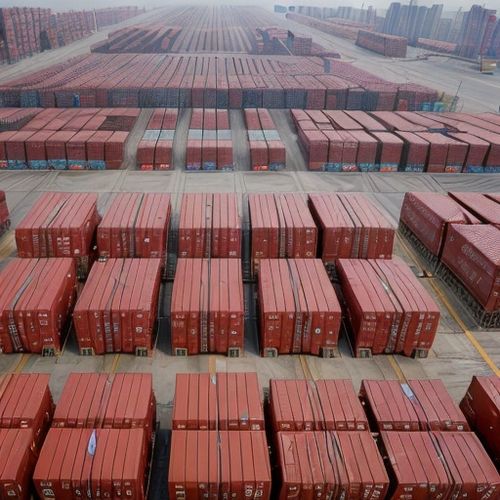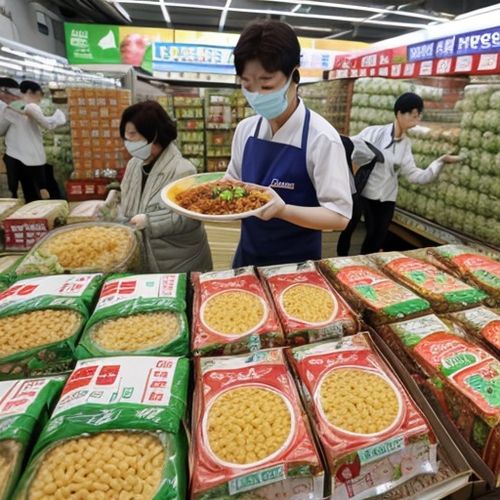Australia has recently announced a significant update to its import regulations concerning noodles, a staple food item in many households. This new legislation mandates that all imported noodles must clearly label their ingredients and the manufacturer's details. The move is aimed at enhancing consumer transparency and ensuring the quality and safety of food products entering the Australian market.
The Australian government's decision to enforce these new rules comes in response to growing consumer demand for clear and accurate food labeling. This is particularly important in a globalized food market where products from various countries are readily available to consumers. The new regulations are expected to have a profound impact on the import and distribution of noodles in Australia, affecting both local and international manufacturers.
Importance of Ingredient Labeling
Ingredient labeling is crucial for several reasons. Firstly, it allows consumers to make informed choices about the food they consume. This is especially important for individuals with dietary restrictions or allergies who need to know exactly what they are eating. For instance, those with gluten intolerance or celiac disease can now easily identify whether a noodle product contains wheat or gluten.
Secondly, clear ingredient labeling helps to prevent food fraud, a growing concern in the global food industry. Food fraud involves the deliberate substitution, addition, or removal of ingredients to make a product appear more valuable or desirable than it actually is. By requiring manufacturers to list all ingredients, Australia is taking a stand against such practices and protecting its consumers from potential harm.
Manufacturer Details: A Step Towards Traceability
The requirement for manufacturers to disclose their details is another significant aspect of these new regulations. This information is vital for traceability, which is the ability to track a product from its origin to the point of sale. Traceability is essential for several reasons:
It enables the quick identification and recall of products in case of contamination or other safety issues. In the event of a foodborne illness outbreak, for example, traceability can help health authorities pinpoint the source of the problem and take appropriate action to prevent further harm.
Traceability also supports fair trade practices by ensuring that products are manufactured under ethical conditions. Consumers are increasingly concerned about the social and environmental impact of their food choices, and knowing the manufacturer can help them make decisions that align with their values.
Impact on Manufacturers
The new regulations will require manufacturers to adjust their packaging and labeling practices to comply with Australian standards. This may involve redesigning labels, updating their supply chain management systems, and potentially investing in new equipment or technology to ensure compliance.
For international manufacturers, this may also mean working more closely with Australian importers and distributors to ensure that their products meet all regulatory requirements. This collaboration can lead to stronger partnerships and a better understanding of the Australian market, which can be beneficial for both parties.
Consumer Reaction and Market Adjustments
Consumers in Australia are likely to welcome these new regulations, as they align with the growing trend towards transparency and ethical consumption. The ability to easily identify the ingredients and manufacturers of noodle products will empower consumers to make choices that are in line with their dietary needs and values.
The market may also see an increase in the demand for locally produced noodles, as consumers look to support Australian businesses and reduce the environmental impact of imported goods. This could lead to a surge in the growth of local noodle manufacturers, providing new opportunities for innovation and job creation within the industry.
Challenges and Opportunities
While the new regulations present opportunities for increased transparency and consumer trust, they also come with challenges. Manufacturers may face initial costs associated with updating their labeling practices and ensuring compliance with the new rules. However, these costs are likely to be offset by the long-term benefits of increased consumer confidence and market access.
Furthermore, the Australian government will need to invest in resources to enforce these new regulations effectively. This may include increased inspections at ports of entry, as well as educational campaigns to inform both manufacturers and consumers about the changes.
The introduction of these new noodle import regulations in Australia marks a significant step towards a more transparent and accountable food industry. By requiring clear ingredient labeling and the disclosure of manufacturer details, the Australian government is not only protecting its consumers but also promoting ethical and sustainable food practices.

By Sophia Lewis/Apr 6, 2025

By Thomas Roberts/Apr 5, 2025

By Emma Thompson/Apr 5, 2025

By Sarah Davis/Apr 5, 2025

By John Smith/Apr 5, 2025

By Laura Wilson/Apr 5, 2025

By Christopher Harris/Apr 5, 2025

By Emma Thompson/Apr 5, 2025

By David Anderson/Apr 5, 2025

By James Moore/Apr 5, 2025

By James Moore/Apr 5, 2025

By Natalie Campbell/Apr 5, 2025

By David Anderson/Apr 5, 2025

By Grace Cox/Apr 5, 2025

By Thomas Roberts/Apr 5, 2025

By Christopher Harris/Apr 5, 2025

By Michael Brown/Apr 5, 2025